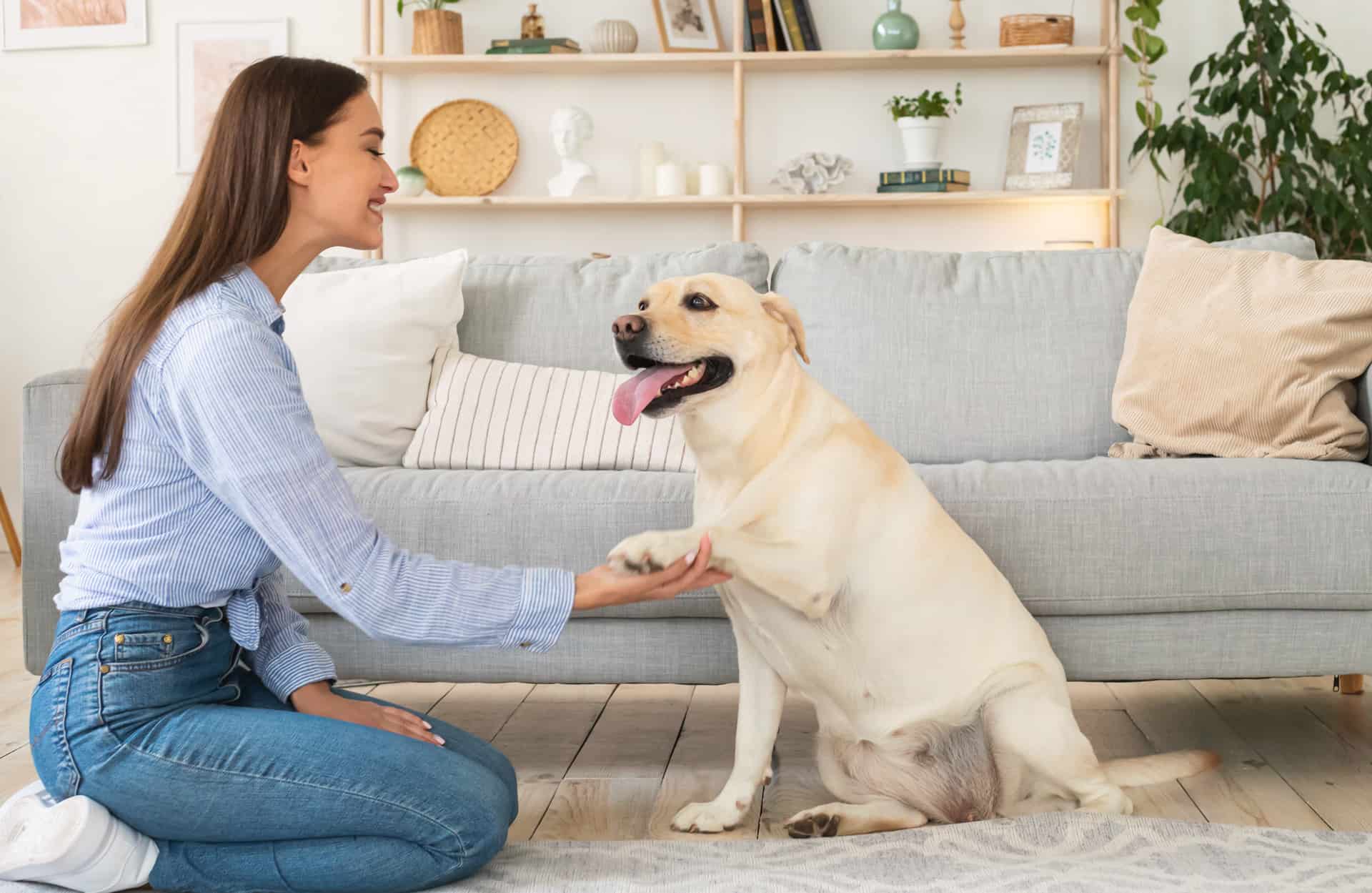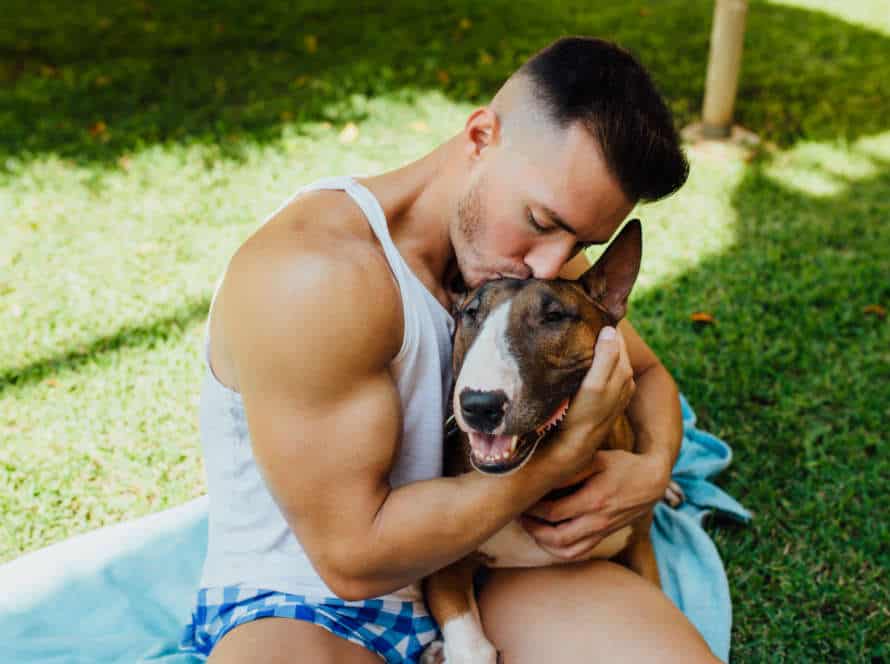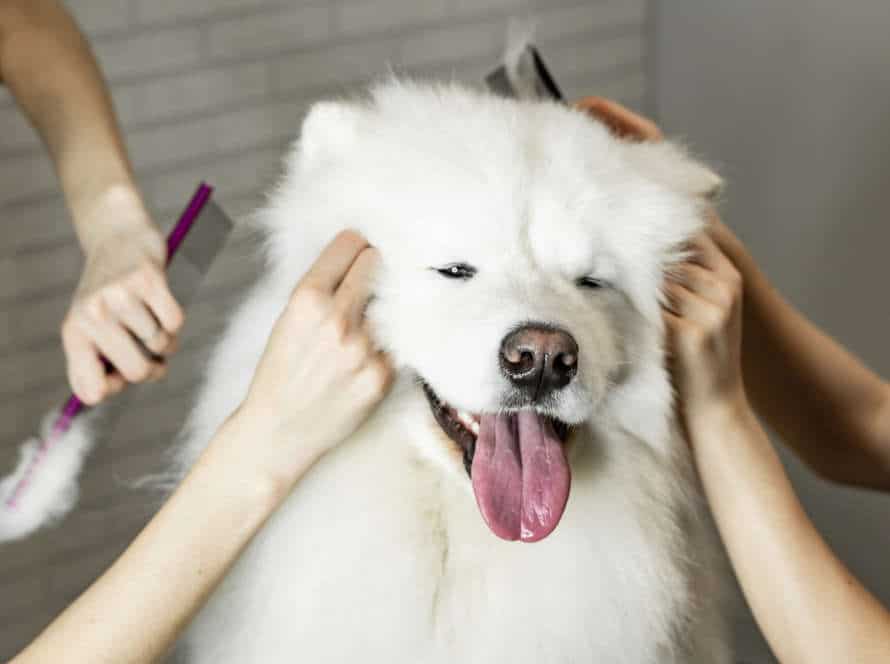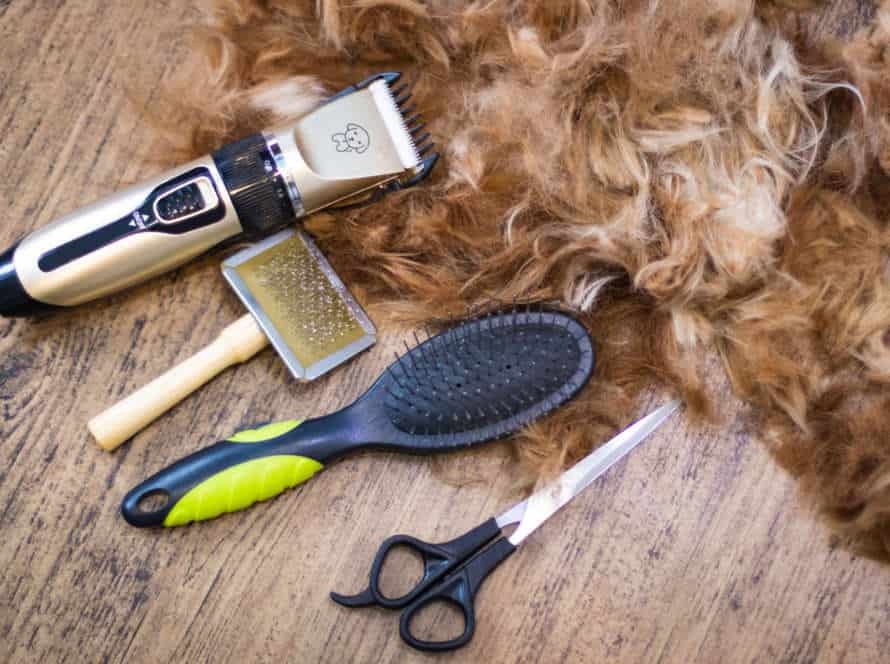Senior Dog Trust: Strengthening Your Connection in Their Golden Years
The twilight years of a senior pup’s life can be tricky, but also incredibly rewarding for owners. It’s key to strengthen the connection with your senior dog during this stage. Here are some tips:
- Quality time: Spend time with your senior pup doing things they like, such as taking a stroll or snuggling on the couch.
- Patience: Senior dogs may be slower and have different needs; be patient and go with their pace.
- Mental stimulation: Stimulate their brains with toys, puzzles, and games.
- Medical attention: Regular vet visits and addressing health concerns right away shows them you care.
- Love: Simple things like petting, grooming, and speaking softly builds your relationship.
By incorporating these tips into your routine, you can create a stronger bond with your senior canine pal and promote their health and wellbeing in their golden years.
Understanding Your Senior Dog
Senior dogs are special! They need extra care and attention. Different nutrition, exercise, and health care are required to keep seniors’ well-being intact. It’s important to understand their needs and personality. This article will help you build trust and a positive relationship with your senior dog. Ways to do it – explore!
Signs of Aging in Dogs
As dogs get older, they experience various physical and behavioral modifications. Some of these can be shocking for their owners. Here are some signs of aging that pet owners should look out for:
- Decreased activity and mobility due to joint pain, stiffness, or arthritis.
- Loss of hearing and eyesight, causing confusion and disorientation.
- Dental problems and gum disease, causing reluctance to eat and bad breath.
- Incontinence, leading to accidents in the house or bedwetting.
- Cognitive decline, memory loss, and confusion, making it tough for them to learn new things and socialize like they used to.
It’s important for pet owners to take their senior dogs to the vet regularly. This helps address any new symptoms they may have. Taking care of your senior dog’s physical and emotional health can help strengthen your connection and trust in their old age.
Pro tip: Making small changes in the senior dog’s environment, such as installing a ramp or providing senior dog food, can improve their mobility and health.
Health Concerns for Senior Dogs
Our four-legged friends can experience health problems as they age. But, we can help them live their golden years to the max by understanding these issues and strengthening our bond.
Common concerns for senior dogs include:
- Arthritis – joint wear and tear causing pain.
- Dental disease – plaque, gum disease, and tooth decay.
- Cognitive dysfunction – memory loss, confusion.
- Vision and hearing loss – natural with aging, affects senses.
- Obesity – a possible cause of other health problems.
Recognizing these issues and working with a vet to treat them can help keep senior pups happy and healthy. Plus, cuddling, grooming, and gentle exercise with your dog can create a deeper connection and promote wellness.
Adjusting to Changes in Behavior
As dogs age, physical and behavioral changes may happen. To keep a good quality of life, you must adjust. Here’s what to know:
- Understand that physical changes, like not seeing or hearing well, joint pain, and neurological issues, can lead to behavioral changes.
- Having a routine, proper nutrition, and check-ups can help prevent or lessen changes.
- Keeping a strong bond with your senior dog is key. It helps with anxiety, stress, and depression.
- If you see big changes in behavior or physical health, ask a vet or dog trainer who specializes in senior care.
Building Trust with Your Senior Dog
You want to make sure your senior pup feels secure, safe, and loved. Building trust is key for strengthening the bond and meeting their needs. Here are some tips for building trust with your senior dog:
Exercises to Build Trust
Bonding with your senior pup can be tricky. Patience and effort are key! Here are some great exercises to create trust and a strong bond:
- Eye Contact: Make sure you look right at your senior pooch to make him feel safe and build trust.
- Massage: Give your elderly pup a gentle back and neck massage to help him relax and trust you.
- Listen: Pay attention to your canine companion’s needs and wants to build trust and strengthen your connection.
- Positive Reinforcement: Reward your senior dog with treats and praise to make him feel appreciated and trusted.
- Professional Help: If it’s needed, get help from a pro dog trainer or behaviorist to build trust and solve any misbehaviors.
Training Techniques for Senior Dogs
Trainin’ a senior pup may seem like an intimidating task – but with perseverence, steadfasness, and the proper techniques, you can reinforce the bond with your old furry mate and make their twilight years more pleasant and fun! Buildin’ trust with your senor doggo is essential for any trainin’ program – and here are a few pointers to help you do just that:
- Form a regular routine and strive to stick to it.
- Employ positive reinforcement techniques like treats, verbal compliments, and cuddles to reward good behavior.
- Stay patient and consistent; elderly pooches may take time to comprehend new commands or may forget ’em if they aren’t reminded regularly.
- Make any adjustments to your trainin’ regimen to fit any physical boundaries or health issues your senior dog may be facin’.
By usin’ these techniques for senior dogs, you can build trust and reinforce your bond with your furry pal – makin’ their golden years as pleasant and comfy as possible.
Positive Reinforcement for Improved Behavior
Positive reinforcement is a great way to improve behaviour in your senior pup and make stronger connections in their later years. Here are some tips to do this effectively:
- Start with the basics like “sit“, “stay“, and “come“.
- Reward your pup’s good behaviour instantly with treats, toys and praise.
- Be consistent with rewards and supply positive reinforcement, even for minor improvements.
- Use positive reinforcement to help your senior pup learn new skills such as agility or obedience training.
- Remember to give your pup plenty of love and attention. This is based on building trust and making a stronger bond.
Pro Tip: Consult with your vet before introducing new training and positive reinforcement techniques if your senior pup has any health issues.
Strengthening the Bond with Your Senior Dog
Senior doggos have needs unlike their younger pals. They need more patience and kindness. Strengthening the bond between you and your elderly pup can bring them joy in their old age. Here are some ideas for strengthening your connection with your senior pup:
How to Create More Quality Time Together
Strengthening your bond with your senior dog is a must. Here’s how to achieve it:
- Schedule walks and playtime frequently. Exercise is essential and a great opportunity to spend quality time.
- Invest in comfy bedding. Senior dogs need their rest and a cozy spot for cuddles!
- Focus on positive reinforcement training. Older dogs may need more reinforcement, but it provides great mental and emotional stimulation for both.
- Plan meals and grooming sessions together. Grooming not only helps hygiene, but also creates a bond. Planning meals together can be a fun, interactive experience.
- Be patient and understanding with your senior dog, and enjoy the time you have!
Finding New Activities for Older Dogs
As your beloved pooch gets older, discovering new activities for older canines can be an amusing and advantageous way to fortify your bond and sharpen their mental aptitude. Here are a few tips!
- Nose work: Train your more seasoned pup to trust their nose to locate concealed treats or toys.
- Shorter jaunts and playtime: Briefer yet more regular strolls and playtime sessions can help uphold your dog’s portability while also keeping them alive and occupied.
- Puzzle toys: Purchase intelligent puzzle toys that will test your pup’s intellectual capacity while giving them treats as a prize.
- Water therapy: Swimming is a low-impact exercise that can help your dog construct quality and bolster their joint wellbeing.
Whatever exercises you pick, recall to set your senior dog’s comfort and security as a priority and dependably counsel with your vet prior to beginning any new exercise program. Pro Tip: Maturing doesn’t mean the finish of the street, so continue reinforcing the bond with your furry companion as they enter their brilliant years.
Calming Techniques for Anxious Dogs
If your senior pup is anxious or stressed, there are techniques to help. Try these to build a closer relationship:
- Massage: Start with gentle strokes and if your dog likes it, increase pressure.
- Music: Play music to create a peaceful atmosphere.
- Aromatherapy: Dilute essential oils in carrier oil and massage your dog’s back.
- Exercise: Daily walks or playtime can help reduce anxiety and stress.
These methods will build your bond and ease your senior dog’s worries.
End-of-Life Care for Your Senior Dog
Providing end-of-life care for your senior dog is a way to strengthen your bond. It’s not the end of your connection; it’s just different. Understanding the unique needs of your elderly canine friend is key. Let’s look at the various aspects of end-of-life care for senior dogs.
Making the Right Decisions for Your Dog’s Comfort
Choosing for your pup’s contentment, particularly during their later years, can be intimidating for many pet owners. When it comes to end-of-life care for your senior dog, it is vital to give them the most love, comfort and respect.
Here are a few tips to keep in mind while selecting the best for your furry companion:
- Monitor your dog’s behavior and appetite regularly.
- Be ready to modify your dog’s medication or diet when needed to reduce their distress.
- Give your senior dog a comfy and safe home environment.
- Look for supportive care from a veterinarian, such as pain management or physical therapy.
- Don’t forget to relish each moment with your senior dog and deepen your bond with them.
- If ever you feel unsure or emotionally drained, chat to a friend, relative or pet loss counselor for help.
Understanding When to Let Go
It’s crucial for pet owners to recognize when it’s time to give end-of-life care to their senior dog. Senior Dog Trust helps you and your pup stay connected in their golden years, and make tough choices with ease.
Here are signs that you should consider end-of-life care for your senior dog:
- Agonizing pain that can’t be relieved with meds or treatment
- No appetite or interest in food or water
- Inability to control bladder or bowels
- Difficulty breathing
- Unable to stand or move
Speak to a vet to decide the best end-of-life care plan for your dog. Enjoy your pup’s last days together and create memories you’ll always treasure.
Coping with Loss and Grief
Coping with loss and grief when owning a senior dog is inevitable and painful. Trust your instincts, rely on your support system and take time to honor your pet’s memory. Here are tips for coping:
- Take care of yourself – eat well, exercise and establish a self-care routine.
- Don’t be afraid to ask for help from family, friends or a therapist.
- Create a special memorial for your pet.
- Join a pet loss support group or find online resources.
- Grieving is personal and there is no “right” way.
- Remember, your pet’s bond will always be part of you.
Taking Care of Yourself as a Senior Dog Owner
As a senior dog owner, you need to think about your pet and yourself. Nutrition, exercise, sleep and a routine are important. To create a positive environment for both of you, here’s what you should do.
- Provide for your senior pup – take care of yourself too!
- Follow the proper steps to enjoy senior life with your furry friend.
Self-Care for Caregivers
Caring for your senior pup? Remember to practice self-care! Here are some top tips:
- Get some shut-eye: Adequate sleep is key for mental and physical well-being. Make sure you’re getting enough each night.
- Take breaks: Schedule regular pauses throughout the day to relax and recharge. Even short ones can help reduce stress and boost energy.
- Make connections: Build a support network of family and friends who can offer help and emotional support when needed.
- Exercise and healthy eating: Regular exercise and balanced meals can help you stay healthy and give you the energy you need for pup care.
- Mindfulness matters: Try activities like meditation, yoga or deep breathing to reduce stress and boost your sense of wellbeing.
Caring for yourself is essential for being able to provide the best care for your pup! So treat yourself and your pup to better health and happiness.
Seeking Support and Resources for Senior Dog Owners
As an older dog owner, it’s a must to find help and resources. This will ensure both you and your doggy live a healthy, happy life. Here are some support and resource options for senior dog owners:
- Online Senior Dog Community Groups: Joining these groups can help you gain knowledge from others’ experiences, look for advice and give help to others in the community.
- Pet Insurance: Getting the right pet insurance can help with the costs of taking care of an ageing dog which may have health problems.
- In-home Dog Care Services: These services can help seniors take care of their dogs when they cannot due to physical restrictions, etc.
- Senior Dog Trust: This program specializes in assisting senior owners with their pup’s wellness plan and strengthens the relationship between them as they age together.
By finding support and using the available resources, the challenges of owning a senior dog can be lessened. This allows you to focus on making quality time with your beloved furry companion.
Finding Joy in Your Relationship with Your Senior Dog.
As an elderly pup owner, it’s normal to feel connected to your furry friend. Strengthening your bond with your aging pet can be a rewarding experience. Here’s how to care for yourself while finding joy in your relationship with your senior dog:
- Create a routine. Having a set plan for feeding, exercising, and playing can help both you and your dog feel secure.
- Practice self-care. Looking after an aging pet can be tough. Make sure to take care of yourself physically and mentally to stay strong.
- Spend quality time together. Go for a calm walk or cuddle up on the sofa for some rest. These kinds of activities can help you form a stronger connection with your senior pup.
- Be patient. Senior dogs may need extra attention. Be patient and understanding as they go through their golden years.
- Trust the journey. It can be emotional seeing your pet age. But, it’s important to trust the process and make the most of every moment together.
Pro tip: Lasting memories with your senior pup take patience, understanding, and a big heart.
Frequently Asked Questions
1. How do I know if my dog is a senior?
A dog is considered a senior when they reach the age of 7 to 10 years old, depending on their breed and overall health.
2. What are some common health issues that senior dogs face?
Senior dogs are prone to arthritis, dental problems, cognitive dysfunction, and organ failure.
3. How can I strengthen my bond with my senior dog?
You can strengthen your bond with your senior dog by spending quality time with them, engaging in gentle physical activities, and providing them with comfort and support.
4. What kind of diet should I give to my senior dog?
Your senior dog’s diet should consist of food that is low in calories and high in Omega-3s and antioxidants to help prevent health issues.
5. How can I keep my senior dog active and healthy?
You can keep your senior dog active and healthy by providing them with regular exercise that is appropriate for their age and physical condition, and by keeping up with their veterinary care and treatments.
6. What are some signs that my senior dog may be in pain?
Signs that your senior dog may be in pain include reluctance to move, changes in appetite, lethargy or lack of energy, and changes in behavior or personality. It is important to consult with your veterinarian if you suspect your senior dog is in pain.







